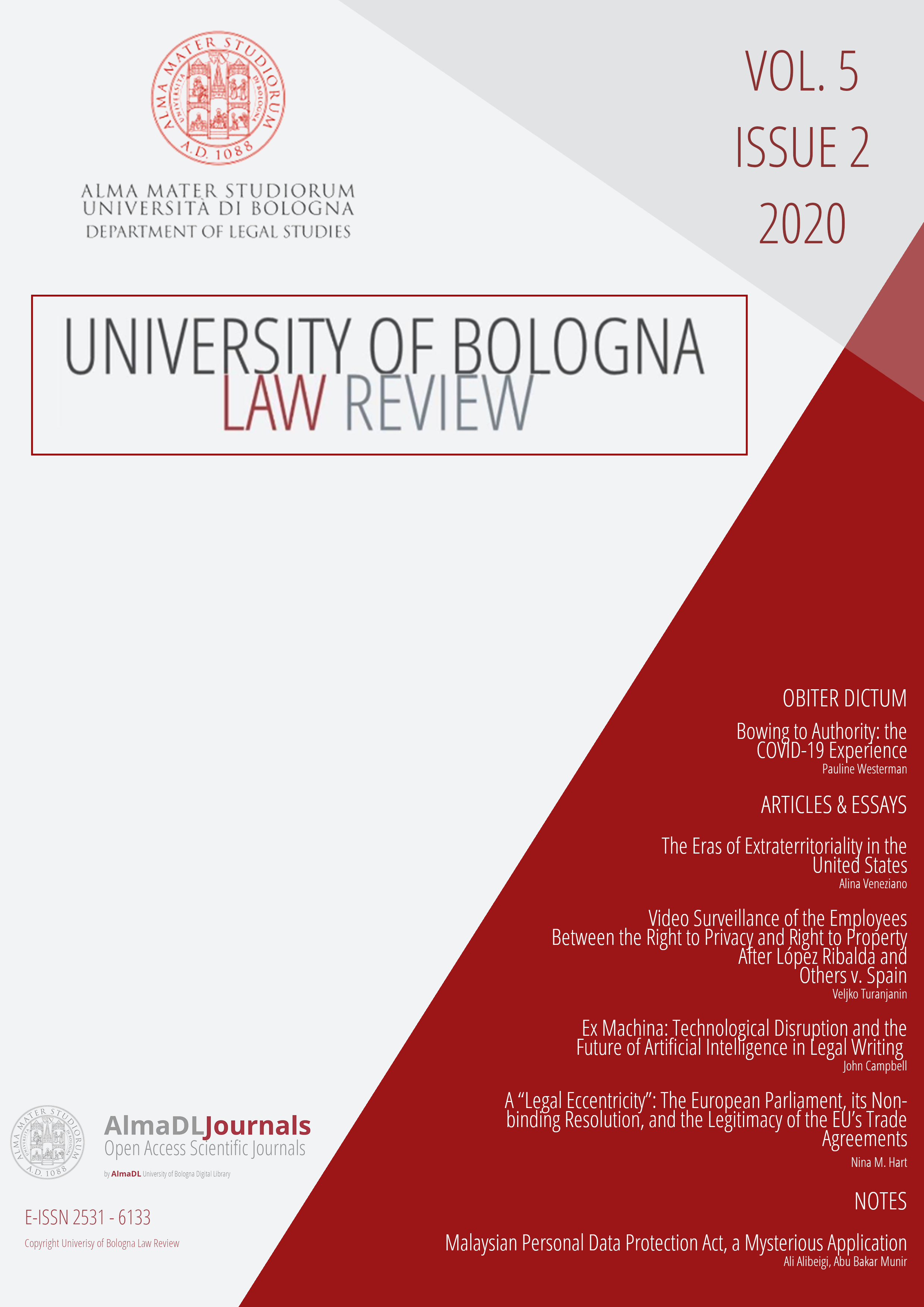A “Legal Eccentricity”: The European Parliament, its Non-binding Resolution, and the Legitimacy of the EU’s Trade Agreements
DOI:
https://doi.org/10.6092/issn.2531-6133/12291Keywords:
Legitimacy, Trade, European Parliament, Soft Law, ResolutionAbstract
The European Union is pursuing an ambitious trade agenda despite the increased controversy over the negotiating process and substance of trade agreements. This controversy raises questions about the legitimacy of trade agreements, as Cecilia Malmström, former European Commissioner for Trade, has acknowledged. This paper seeks to evaluate the legitimacy of the EU’s agreements, with a focus on the role of the European Parliament as a legitimating actor, given its position as the democratic representative of the public. It argues that the Treaties do not provide for sufficient legitimacy and then considers whether Parliament has been able to use its informal governance tools, particularly the non-binding resolution, to narrow the legitimacy deficit.
Downloads
Downloads
Published
How to Cite
Issue
Section
License
Copyright (c) 2020 Nina M. Hart

This work is licensed under a Creative Commons Attribution 4.0 International License.














